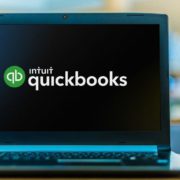Housing Assistance during COVID-19
Contributed by: Brieanna Pettengill, CPA – Manager
New Hampshire Governor Chris Sununu authorized the allocation of $35 million in CARES Act Funding to support families or individuals in need of housing assistance as a result of COVID-19. There are no income eligibility requirements for these funds.
What are the biggest takeaways from this assistance fund? According to recent documentation listed on https://www.goferr.nh.gov/covid-expenditures/new-hampshire-housing-relief-program, applicants should know that these one-time assistance grants can be used to assist households with:
- Delinquent rent dating from April 2020 forward for households missed rent payments due to either increased household expenditures or lost household revenue as a result of COVID-19
- Missed housing/household related expenses that may impact an individual’s or family’s ability to remain houses
And/or
- Other housing-related one-time expenses that, if not paid, impact the ability to maintain housing
What To Know About The One-Time Assistance Grants
Beyond qualifying for the grants, there are other considerations when applying for the housing assistance grants. Again, according to information found here applicants should know the grant:
- Is not to exceed $2,500 and is conditioned on COVID-19 related loss of household income or increased household expenses
- Specifically targets households that will be able to maintain their housing without assistance after the one-time grant payment.
Short-Term Rental Assistance May Also Be Available
The New Hampshire Housing Relief Program will also provide short-term rental assistance to maintain or secure permanent housing. This includes assistance for:
- Past-due rent not paid due to a COVID-19 related inability to pay and ongoing rental assistance on a short-term basis using progressive engagement. The rental assistance will decrease over time as households regain stability
Or
- First month’s rent and ongoing short-term rental assistance to assist with initial costs to facilitate the transition of working households from shelters into permanent housing
The New Hampshire Housing Relief Program goes on to say that both of these assistance programs will be coupled with regional case management services to help connect households to appropriate services as defined by the household and the agency. Any received payments will be made directly to the landlord or provider. Also, it’s important to note that this program ends by December 30, 2020.
To find out if you qualify for assistance, visit your local Community Action Partnership (CAP) office for funding and further information. Or, contact Leone, McDonnell & Roberts to discuss your options with an experienced tax professional.
Sources
https://www.goferr.nh.gov/covid-expenditures/new-hampshire-housing-relief-program










